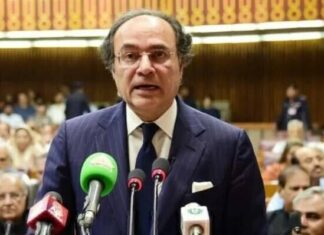ISLAMABAD
Islamabad High Court (IHC) has annulled the government’s order regarding suspension of Amjad Parvez Janjua, a senior general manager of PSO who held the responsibility of the Managing Director of the Company before he was placed under suspension along with other top brass of the petroleum ministry during petrol crises of January 2015.
He had challenged his suspension in the high court.
He had warned the government before the petrol crisis, in the capacity of managing director of PSO, emphasizing that if the festering issues, including the bulging circular debt were left unresolved they would culminate into a national crisis. Under his leadership, PSO achieved highest share of fuel supply among oil marketing companies during the crisis.
It was admitted by the respondent in the court, as a matter of record, that despite facing serious financial hardships due to power sector receivables, PSO under petitioner’s (Janjua’s) management played a lead role in coping with the petrol crisis and stayed ahead of its targets and ahead of other oil marketing companies in terms of petrol sales.
It was also admitted that the petroleum ministry had reported to the prime minister that the ministry/BOD had been constantly reviewing the performance of MD-PSO.
During the financial year ending June 30, 2014, PSO recorded all time high sales revenue, profit after tax and earnings per share. Sales revenue stood at Rs 1.4 trillion compared to Rs 1.29 trillion during the same period last year (SPLY), registering a growth of 9 per cent. Afterwards, tax earnings rose by 73 per cent to Rs 21.8 billion as compared to Rs 12.6 billion during SPLY. In view of his performance, the Board of Management had commended the management led by Amjad Janjua.
It was further admitted before the court that PSO’s Annual Report 2014, recognised the petitioner’s leadership role and the board unanimously resolved to place on record its commendation for the management of PSO, particularly Amjad Parvez Janjua MD-PSO, for achieving outstanding yearly results for the company, which were all-time high in the history of PSO.
However, the respondent raised objections to maintainability of the writ petition in the court by, inter-alia, challenging the territorial jurisdiction of the honourable court to entertain and adjudicate upon the instant writ petition, and contended that the principle of master and servant was applicable in the instant case.
As an accomplished career professional, Janjua has also served as CEO of Asia Petroleum Limited and held various coveted consulting and advisory positions in Pakistan and abroad, apart from serving as director on the boards of several leading companies.
It was petitioned that under his leadership, PSO enjoyed unprecedented financial and operational success. By virtue of such outstanding performance, PSO made the highest ever contribution of Rs 289 billion to the exchequer in the form of duties, taxes and levies.
However, the reward for his hard work and diligent discharge of his duties and extraordinary performance has been that he continues to be used as a scapegoat to heap blame for the petrol crisis that he successfully helped mitigate in his leadership capacity and not generate, it was petitioned.
It is worth mentioning here that the federal minister of petroleum is on record for stating in the media and before parliamentary committees that PSO was not responsible for the Petrol Crisis and had successfully achieved its performance targets.
The regulatory authority, OGRA, based on show-cause proceedings to investigate the role and responsibility in the petrol crisis imposed a fine of Rs 17.8 million on five OMCs while PSO was not fined as it had complied with its obligations. The Oil Companies Advisory Council (OCAC) in its meeting held subsequent to the petrol crisis, acknowledged that PSO had met/exceeded its demand targets.























